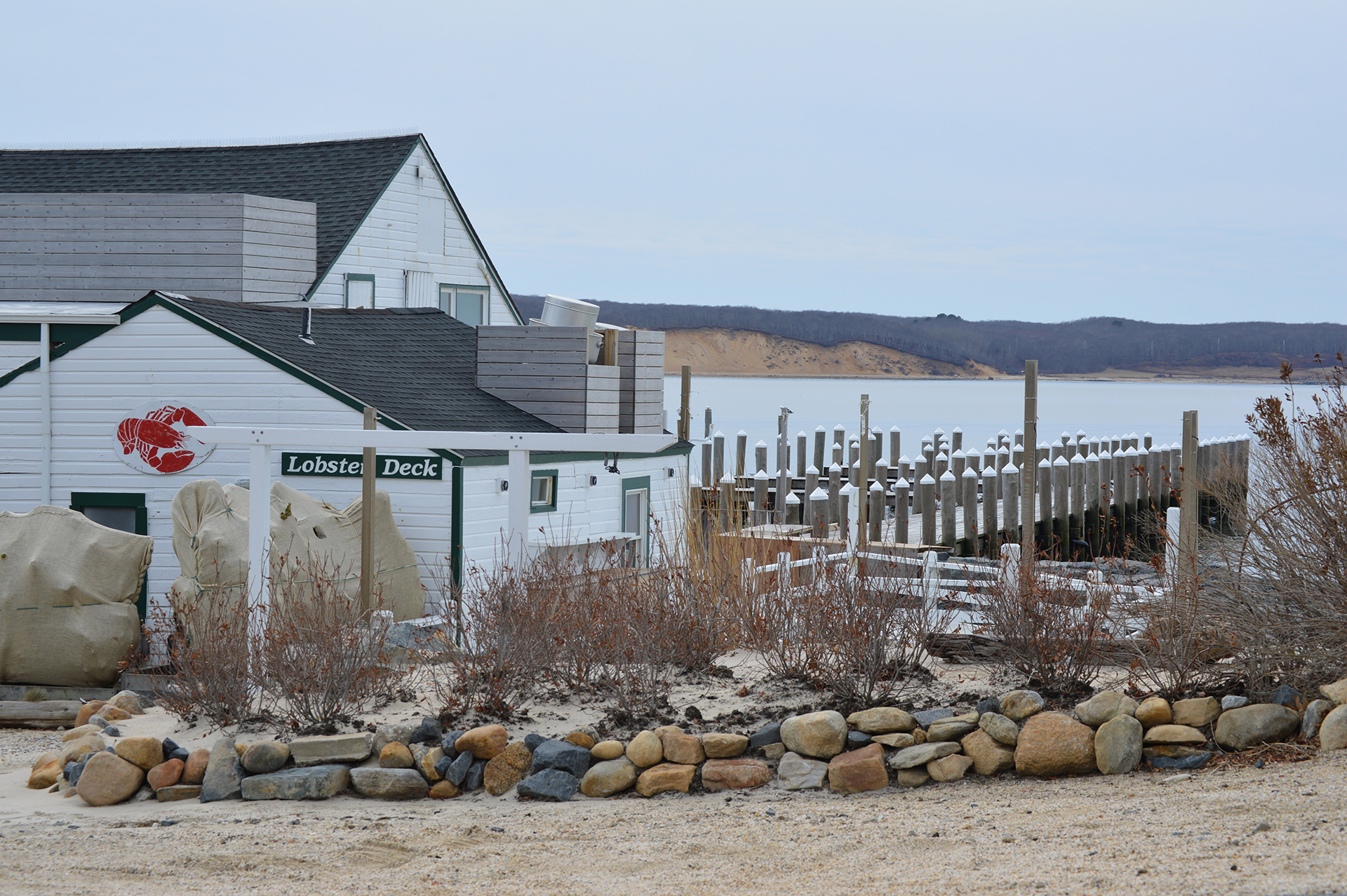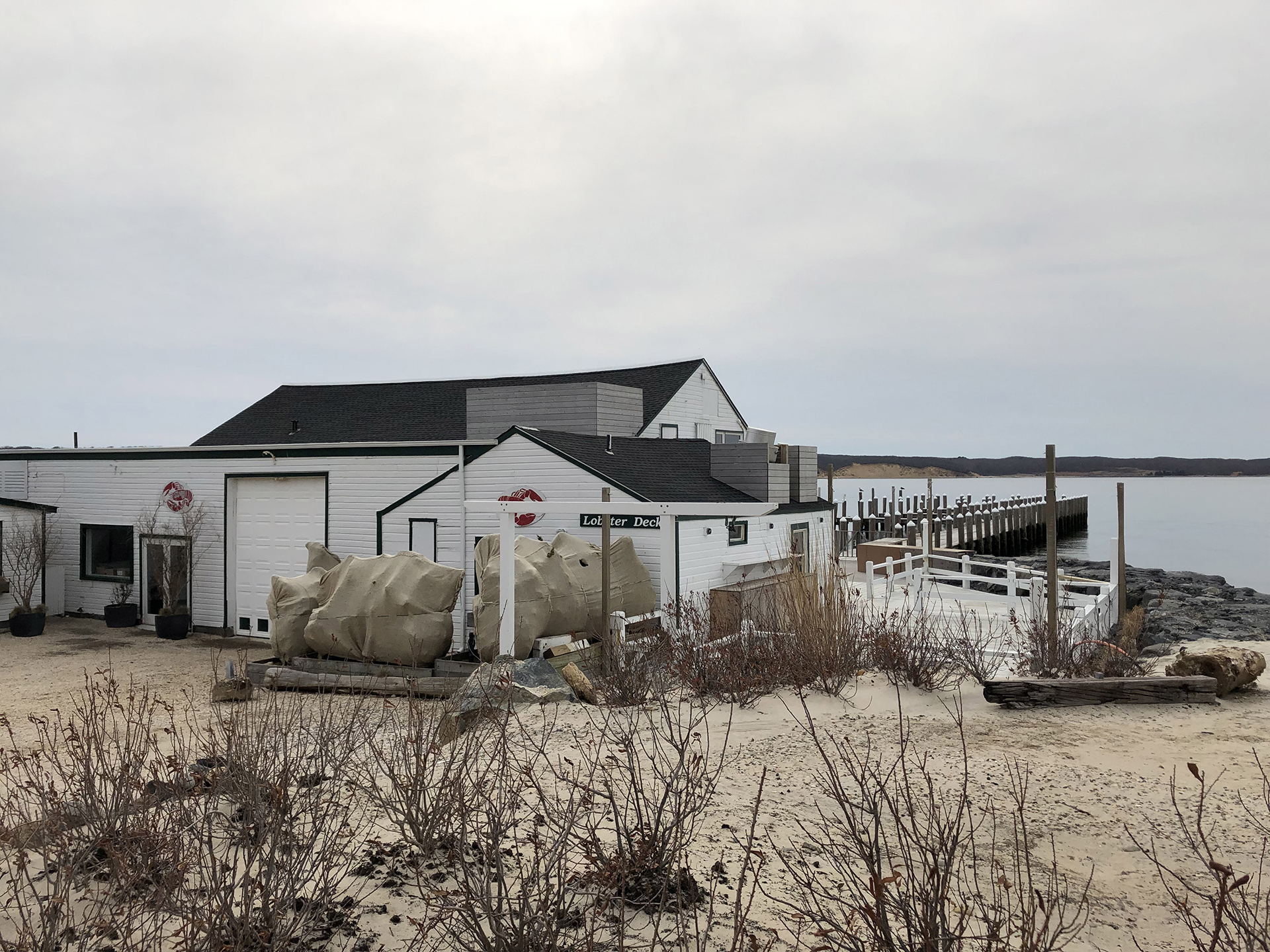Duryea Dock Deal Challenged In Fiery Exchange


The East Hampton Town Board’s February 21 meeting produced the kind of fireworks rarely seen at Town Hall, as Councilman Jeffrey Bragman attacked the recently agreed upon settlement between the owner of Duryea’s Dock and the town.
“I don’t think we fought hard enough for the town,” Bragman said. “I don’t think we fought hard enough for Montauk. This is a pretty good deal for the other side.”
The town’s lead attorney, Michael Sendlenski, explained to the board that out of the five attorneys on the town’s payroll, three had conflicts with some aspect of the matter, and had to recuse themselves, leaving only Sendlenski and John Jilnicki, who advises the town’s planning board on legal matters, to wrestle with the negotiations.
Bragman clarified that he wasn’t referring to the town attorney’s office, rather his fellow town board members.
Supervisor Peter Van Scoyoc countered, “Four of the five of us worked very hard on this,” Van Scoyoc said, referring to the board members minus Bragman.
“I just don’t think that this is a favorable deal for the Town of East Hampton,” Bragman reiterated.
Though he never mentioned him by name, Bragman, during his extended critique of the settlement, repeatedly alluded to Marc Rowan. According to Forbes Magazine, Rowan, whose personal net worth is over $3 billion, “is the cofounder of Apollo Global Management, one of the biggest U.S. private equity firms, with $269 billion in assets.”
In 2014, Rowan purchased the iconic casual seafood eatery Duryea’s Dock, where lobster rolls and other fare is served on paper plates. He paid about $2.5 million for a residentially zoned lot — the lesser valued of the two parcels that comprise the site, according to online records. The amount paid for the commercial property where Duryea’s is located is unknown; it likely was a considerably higher amount. The two properties straddle Tuthill Road next to Fort Pond Bay.
Since buying Duryea’s, Rowan has quietly been scooping up properties around Fort Pond Bay, and across Montauk.
Bragman called the town’s negotiations with Rowan’s attorneys a “supine reaction” that will allow Rowan to convert Duryea’s Dock into a “full-scale high society restaurant.”
“I don’t think we have to sit back and salute him while he is doing this,” Bragman added. Under the terms of the agreement with Rowan, there would be an expedited site plan review process, which, the councilman said, he did not perceive as legal. He also questioned the legality of the town board setting timelines for the planning board.
Rowan’s Plan
After Rowan purchased the property, he presented the East Hampton Town Planning Board, in 2015, with an expansive plan for the site.
Under this plan, the current buildings housing Duryea’s various businesses would be torn down, including the ice factory, the retail area, and the take-out food business, to be replaced by a 6360-square-foot restaurant, seating 100 inside, and 50 outside, with a total capacity for over 350 patrons at a time. There also would be a new 780-square-foot retail shop. A cottage currently on the Pond View Bay side of the property would be moved closer to Tuthill Road, and a portion of the cottage would be relocated. There would be 47 parking spaces on the land zoned business.
On the other side of Tuthill Road, currently zoned residential, a modern septic system would be installed, along with parking for 22 more vehicles.
JoAnne Pahwul, the town’s assistant planning director, wrote a memo to the planning board regarding the proposal in 2015. A special permit would have to be obtained by the applicant for the restaurant, she said, citing a 1997 Zoning Board of Appeals determination that Duryea’s was a takeout food business, not a restaurant. Pahwul also told the planning board in the 2015 memo that Rowan would need numerous variances from the town, for matters such as setback distances, as well as a permit from Suffolk County for the septic system. She also questioned the legality of placing the septic system on a property zoned residential when it was servicing an adjacent business zoned property.
When a mini-firestorm broke out over the application, it was withdrawn.
Public Backlash
Last year, Michael Walsh, Rowan’s litigator on these matters, brought three lawsuits against the town. One suit concerned patents granted to Perry Duryea, and before him, Tuthill, for the land under water upon which the dock and other structures sit. That patent means that specific land is under the jurisdiction of New York State, Sendlenski told the board February 21.
Walsh launched a second suit, calling for the immediate issuance of a certificate of occupancy, and a third, challenging the zoning issue. Bragman called these suits a “Trojan Horse” to get a restaurant built.
The settlement reads, in some ways, like the site plan application from 2015, but without mention of a restaurant. The septic system will be placed on the property currently zoned residential, along with parking spaces.
In the settlement, Rowan agrees that he will never bring in ferry service. Sendlenski also pointed out that the deal includes the new septic system. But Bragman chafed at both points. He told the board that the septic system was something that would have to be done, anyway. After the meeting, Bragman pointed out that, while there would be no ferries, the settlement allows Duryea’s to shuttle patrons from the flotilla of yachts that drop anchor in Fort Pond Bay every summer season.
The fireworks at Town Hall February 21 were sparked by comments made by Springs resident David Buda, a constant observer and sometime critic of the town and its attorney’s office. Buda had obtained a copy of the settlement, which he shared with the media, then brought to the town board’s attention. Buda had a couple of strident exchanges with Sendlenski, as well.
While a restaurant was not mentioned in the settlement, the right to employ a wait staff “for those customers requiring assistance, or any other condition” is in the agreement. Buda called the arrangement a restaurant, as did Bragman. Sendlenski said that the settlement “gives them exactly what they have now. They have service to individuals who request accommodation. That is something they provide under the Americans with Disabilities Act.”
On file at the courthouse are four open charges in East Hampton Town Court brought by the code enforcement division, against Duryea’s Dock, all written on August 29, 2017 by Kelly Kampf, who has since become a police officer for Sag Harbor Village.
One of the counts charges Duryea’s with discharging untreated waste water on August 20, 2017, onto the ground, of which code enforcement allegedly received a photo. Kampf visited the site on August 29, and reported “a strong odor of septic waste in the air.” Walsh challenged that charge, according to court papers, since Kampf hadn’t actually seen the waste being discharged on August 20.
Two other charges were for the use of structures by “patrons and wait staff,” which had never received site-plan approval, and the lack of a certificate of occupancy. While there is no charge, as Sendlenski told the board, of an “illegal change of use,” as with a restaurant, the words, “expansion of use” are used in the accusatory documents, themselves, written by Kampf. Rowan’s attorney challenged those citations, as well.
The Town of East Hampton dropped all local charges against Duryea’s in East Hampton Town Justice Court on Monday.
t.e@indyeastend.com








